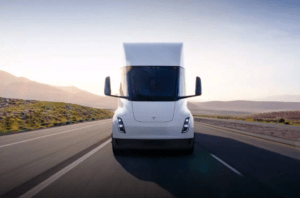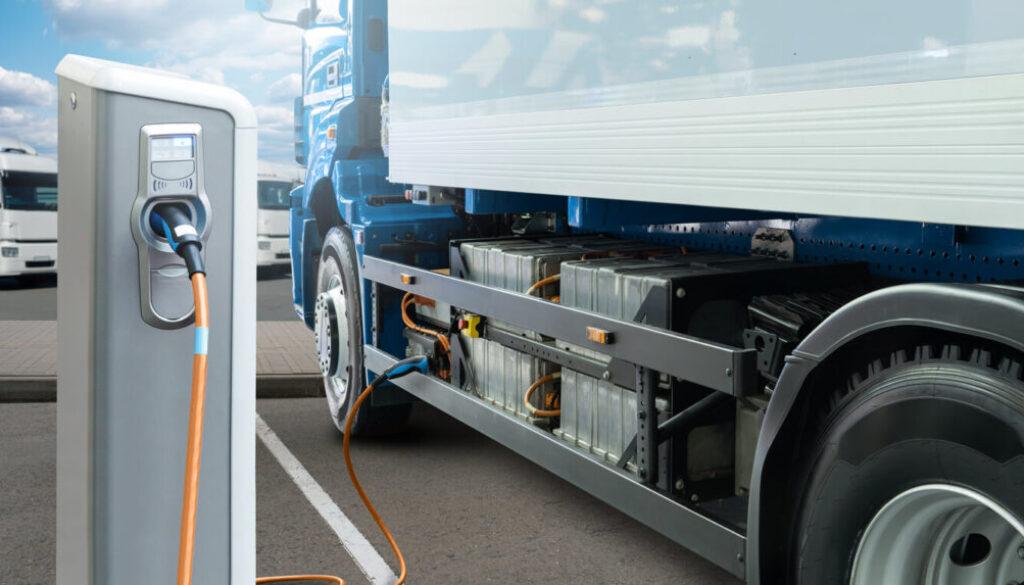In recent years, there has been a significant increase in the adoption of electric vehicles (EVs) across the globe, and commercial vehicles such as electric semi-trucks have been gaining momentum in many countries. The transportation industry is responsible for significant global greenhouse gas emissions, and switching to electric semi trucks is a crucial step towards a more sustainable future.
One of the most significant markets for electric semi trucks is China, which is the world’s largest market for both new energy vehicles (NEVs) and commercial trucks. The Chinese government has been aggressively promoting the adoption of electric vehicles, and this has led to a significant increase in the number of electric semi-trucks on Chinese roads. The country’s largest commercial vehicle manufacturer, Foton, has launched its Auman EST electric semi-truck, which has a range of up to 400 kilometers on a single charge. Other Chinese manufacturers such as BYD and Dongfeng have also introduced electric semi-trucks to the market.
LOW COST OF OWNERSHIP: according to Tesla, Charging with electricity is approximately 2.5 times cheaper per mile than refueling with diesel. Operators can see estimated fuel savings of up to $200,000 within their first three years of ownership. With remote diagnostics, over-the-air software updates and fewer moving parts to maintain, operators will spend less time at service centers and more time on the road.
Europe is another major market for electric semi trucks, with several countries offering incentives for the adoption of electric vehicles. Germany, for example, has set a target of having 100,000 electric trucks on its roads by 2030. Daimler, one of the largest truck manufacturers in the world, has launched its eActros electric semi truck in Europe, which has a range of up to 200 kilometers on a single charge. The company started series production of the eActros in 2021.
 In North America, the United States is the largest market for electric semi trucks. Tesla, one of the most prominent EV manufacturers in the world, has been developing its Tesla Semi since 2017, and the vehicle is expected to have a range of up to 800 kilometers on a single charge. Several major companies in the US, including Walmart and PepsiCo, have already placed orders for the Tesla Semi. Other manufacturers such as Rivian and Nikola have also announced plans to produce electric semi trucks in the coming years.
In North America, the United States is the largest market for electric semi trucks. Tesla, one of the most prominent EV manufacturers in the world, has been developing its Tesla Semi since 2017, and the vehicle is expected to have a range of up to 800 kilometers on a single charge. Several major companies in the US, including Walmart and PepsiCo, have already placed orders for the Tesla Semi. Other manufacturers such as Rivian and Nikola have also announced plans to produce electric semi trucks in the coming years.
Electric semis are also gaining traction in other parts of the world, such as India and Australia. India has set a target of having 30% of its vehicles on the road run on electricity by 2030, and this includes commercial vehicles such as semi trucks. Indian automaker Mahindra has launched its Treo Zor electric three-wheeler, which is designed for last-mile delivery and has a range of up to 125 kilometers on a single charge. In Australia, electric semi trucks are being used for short-haul transportation, with companies such as SEA Electric and Volgren producing electric buses and trucks for the local market.
Despite the growing popularity of electric semi trucks, there are still some challenges to be overcome. One of the most significant challenges is the need for a robust charging infrastructure to support the increased adoption of electric vehicles. This requires significant investment in charging stations and grid infrastructure, as well as collaboration between governments and the private sector.
Another challenge is the cost of electric semi trucks, which is currently higher than that of their diesel-powered counterparts. However, as battery technology improves and production scales up, the cost of electric semi trucks is expected to decrease, making them more accessible to businesses.
Electric semi trucks are a crucial part of the future of transportation and are gaining momentum in many countries around the world. The shift towards electric vehicles is essential to reduce greenhouse gas emissions and mitigate the impacts of climate change. While there are still challenges to be overcome, the growing popularity of electric semi trucks is a positive sign that we are moving towards a more sustainable future.

